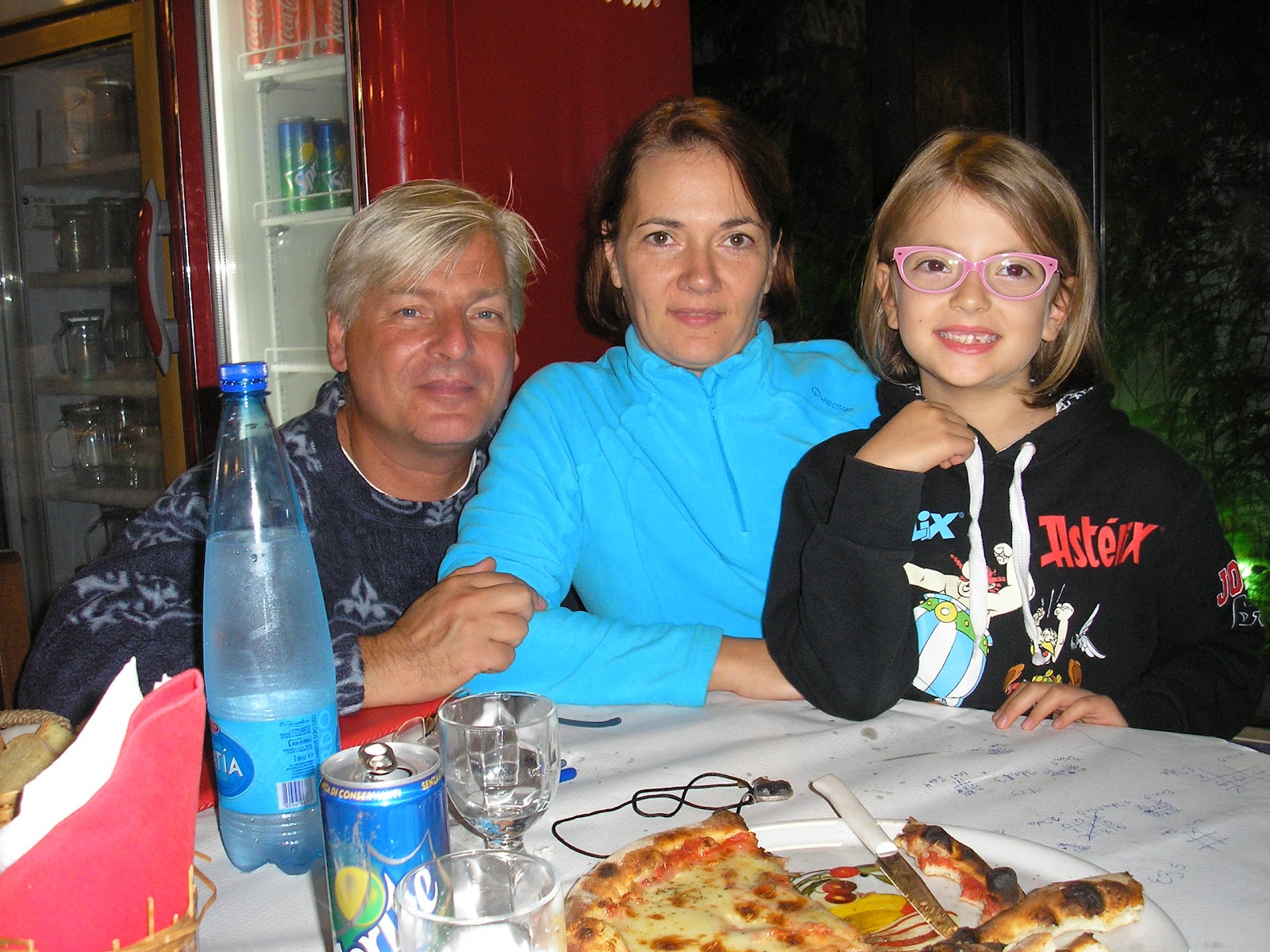This post is from the email blog of my professor, Dennis Cooper, about his 2 day site visit here in Trecastagni
Francesco Palmitessa awoke in his bed to the shaking of the earth and the collapsing of his house around him. His wife and daughter lay in bed beside him. When the terrible onslaught of falling walls and ceilings subsided, he discovered to that he was the only one left alive.
Three hundred and nine people died that morning in L'Aquila, Italy, in the 6.3 magnitude earthquake that struck in 2009, mainly from being crushed by collapsing buildings. A physician, Dr. Palmitessa and his family had evacuated his house the night before, because they feared that an earthquake was imminent. Civil defense authorities, however, tried to reassure townspeople that, despite the warnings issued by scientists and the tremors beneath their feet, the risk of an actual earthquake at that time and place was low. People were told to go into their homes, have a glass of wine, and sleep in their beds.
After the disaster, survivors like Dr. Palmitessa and, indeed, much of the public angrily demanded that those who failed to give adequate warning to victims be held responsible. Subsequently, charges were leveled, a trial was held, and on Monday, Oct. 22, the verdict was announced: seven Italian geologists and disaster experts were convicted of manslaughter and each sentenced to six years in prison.
On Tuesday morning, Oct. 23, I arrived in Catania, Sicily, and was met at the airport by my student, Erin Peterson, and her mentor, Dr. Boris Behncke. I did not know it yet, but I soon learned I had landed at the epicenter of the international headlines shaking the geological and scientific world in the wake of Monday's verdict. For Dr. Behncke is a geologist at the Catania branch of the INGV, the National Institute for Geology and Volcanoes in Italy. One of his colleagues was among the seven convicted scientists.
Dr. Behncke's job is to study and monitor the activity of Sicily's Mount Etna, one of the most active volcanoes in the world and one that has erupted many times in the past, claiming many victims from the well-populated slopes, valleys, and plains below, including the city of Catania and Trecastagni, where Boris and his wife Catherine live with their 7-year old daughter, Ida.
 |
| Dr. Boris Behncke, his wife Catherine, and his daughter, Ida |
 |
| Ida and Erin playing tic-tac-toe, to the amusement of Catherine |
 |
| Dr. Boris Behncke |
Dr. Behncke greeted me cordially and bought me a coffee at the airport. He was obviously agitated and he came right to the point: I had arrived in the middle of a crisis at his institute, which he described to me in detail, including the story of Dr. Palmitessa (not his real name). He did not excuse the convicted scientists of downplaying the probability of the disaster, but he added that they had done so under pressure from political authorities and administrators who did not want to alarm the public of something that might not happen, or might not happen when and where it did. He agreed with my suggestion that the convicted scientists had been scapegoats.
We discussed the whole problem of prediction of natural disaster prediction, which is based on probabilities and risk, rather than certainties. The next time Mount Vesuvius of Pompeii fame erupts (and it will), geologists will know something is happening, but they won't know exactly when or where. What happens in the meantime - evacuate everyone from the Bay of Naples? When? To where? For how long? What if Vesuvius threatens to erupt for months? Hundreds of thousands of people will be temporarily housed elsewhere in Italy, in tents or camps, waiting, waiting?
And even if that all works out perfectly, and Vesuvius erupts on schedule and destroys Naples, what do people come back to? Rubble from houses that were not built to withstand coinciding earthquakes? Houses that were built in the possible path of erupted lava, rocks, gas, etc.?
The moral of the story is that prevention is much better than prediction. There is currently no good way to respond effectively to predictions of earthquakes and volcanoes. What we can do is prevent the consequences of these disasters from being so terrible. For example. we can build houses that are "quake-resistant". If Dr. Palmitessa's house had been built so, his wife and daughter might still be alive today.
Incidentally, there is a column in the International Herald Tribune/New York Times today (Oct. 26) by Juliette Kayyem in which the significance of the convictions of the seven scientists is discussed. Interesting stuff, but I don't agree with much of what she writes.
My student, Erin, is a majoring in Geology at UW-River Falls. She is spending two months studying volcanoes in Italy, including about one month with Dr. Behncke and his colleagues at the INGV. She is doing so in the Semester Abroad: Europe program (SAE) at UWRF. Although her subject is volcanoes, Erin is getting a much bigger and better education than she ever dreamed of. She is getting this education the only way possible - by being here (and doing a great job under the tutelage of her UWRF adviser, Dr. Ian Williams).
 |
| Erin and an INGV scientist checking gas emissions from Etna |
 |
| Dennis Cooper, Erin, and an INGV scientist in Zafferana, Sicily |
This is one example of the tremendous experiences students can have when living and studying abroad.
See you soon,
Dennis
